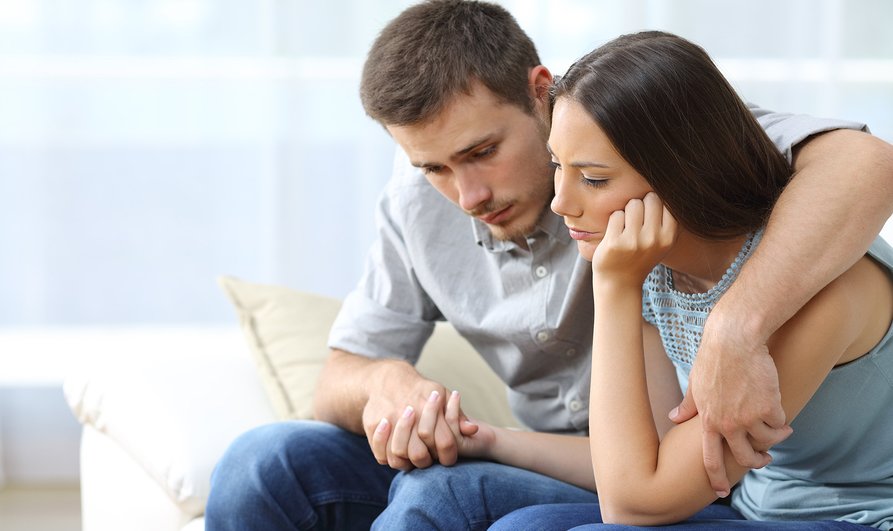As comedians like to point out, nobody ”gets out of here alive.” Given that, it’s also true that few of us get off the planet before watching somebody we love die. The big and unavoidable question we all must face, sooner or later, is how to go on with living after losing a dear one. You can be sure that when you lose someone, you’ll receive plenty of home-grown advice—get back on the horse right away (which is pretty useless advice if we’re talking about losing a child or a parent), or the opposite, let yourself mope and emote for a year or two (which means you’re still faced with getting back on the horse after that). You can be sure that most of this advice won’t be based on your real needs at the time and will, therefore, be unlikely to help.
The truth is that as a culture, we are terrible at knowing how to handle our own grief or how to give solace to others in theirs. That’s at least in part because we don’t know a whole lot about the grieving process. Perhaps these facts will help.
Not everybody gets depressed
Shocking as it may seem, research reveals that after losing a loved one, plenty of people go on with life within a very short time, whistling a happy-enough tune instead of falling into the expected depression. In fact, a 2002 study of 1500 elderly couples out of Columbia University found that three-quarters of the participants did not get depressed when their spouse passed away.1 Arkowitz, Hal and Lilienfeld, Scott O. “Two Big Myths About Grief.” 1 November 2011. Scientific American. 17 February 2017. http://www.scientificamerican.com/article/grief-without-tears/ Say what you will about the state of those marriages—it’s still an astonishing finding. Eighteen months later, only 16 percent still were depressed. And ten percent of the participants actually felt relieved right after the death.
It should be noted that this study focused on elderly people only, and a ll of the participants were Caucasian. The results might have been different had the study group consisted of younger people from different backgrounds, or if the participants had lost children, for instance, instead of spouses. Also, just because partners weren’t depressed doesn’t mean they didn’t feel the loss in some way. Other studies have found higher incidences of depression, particularly right after a loss, although even those studies, it must be admitted, found far lower rates of depression than one might think. And that brings us to the second surprising finding.
We grieve for our pets at least as intensely as for the humans we lose
In fact, a study out of the University of Hawaii found that of 106 participants who had lost pets, 30 percent were still grieving six months later.2 Parker-Pope, Tara. “Mourning the Death of a Pet.” 21 April 2010. The New York Times. 17 February 2017. http://well.blogs.nytimes.com/2010/04/21/mourning-the-death-of-a-pet/?_r=0 Twelve percent were in such deep distress that their daily functioning was still impaired after a year.
As we discussed in a previous blog post, there are many reasons why grieving for pets may linger longer than grieving for humans. For one thing, we often spend more time on a daily basis with our pets than with family or friends, and so we feel the hole they leave more acutely. And relationships with pets tend to be less conflicted than relationships with people since pets love us unconditionally whether we say stupid things or belch too loudly. When our pets pass, we feel out- and- out sadness, but when humans pass we may feel a mix of things, including left over resentments, disappointments, and hurts.
Finally, it’s easier to process the loss of the people in our lives since we normally gather in sympathy for humans, marking the loss, but our friends may shrug off the death of our pet. W e also get no time off for work; there’s simply no formal way to process. Thus, we suffer what psychotherapists call “disenfranchised grief,” which is particularly difficult to heal.
Those famous five stages
Elizabeth Kubler-Ross did the world a great service when she developed her theory of loss, which she laid out in her seminal work, On Death and Dying, published in 1969. Ms. Ross postulated that grief is not a simple matter of getting and staying sad, but that a range of predictable emotions are typically experienced by those who are grieving and that those stages usually follow, more or less, a particular order.3 Patricelli, Kathryn. “Stage of Grief Models: Kubler-Ross.” AMHC. 18 February 2017. http://www.amhc.org/58-grief-bereavement-issues/article/8444-stage-of-grief-models-kubler-ross In her view, grief starts with shock and denial that the person really is gone, then moves to anger (at God and at the deceased) that the person has left, followed by bargaining with the Almighty to bring the person back, depression in realizing that the loss really has happened, and finally, reconciliation and acceptance, where the loss is accepted and the bereaved prepares to move on.
In fact, not everybody goes through those five stages. Also, the stages may not happen in the expected order. Someone might start out angry, then get depressed, then go right to acceptance. Or, bargaining might be the first stage for some, and then depression. Someone might even start with acceptance and then get depressed, or angry, later. While knowing the five stages can prepare you so that you recognize your grief reaction as normal, it’s also important to understand that there are infinite variations in how individuals process loss.
It’s critical to get immediate help
The common belief is that bereaved individuals need to spend some weeks or months getting through the crisis of loss before embarking on grief counseling. But a 1987 study of nearly 96,000 people who had been widowed revealed a very different picture.4 Friedman, Russell. “Studies Prove Need for Immediate Attention to Grief—And To Label It Correctly.” 5 January 2010. Psychology Today. 18 February 2017. http://www.psychologytoday.com/blog/broken-hearts/201001/studies-prove-need-immediate-attention-grief-and-label-it-correctly The study found that the rate of heart attacks as much as triples in the first week following the death of a loved one. Suicide rates go up by 242%, and fatal accidents by 153%. In other words, in the week following the death of a loved one, it’s essential to get professional help as well as to be surrounded by family and friends who are aware of the risks.
Again, there’s nothing we can do to stave off the inevitable end of the show, but at the least, it helps to know what’s normal so we don’t say unhelpful things to our grieving friends, or to our grieving selves.
References
| ↑1 | Arkowitz, Hal and Lilienfeld, Scott O. “Two Big Myths About Grief.” 1 November 2011. Scientific American. 17 February 2017. http://www.scientificamerican.com/article/grief-without-tears/ |
|---|---|
| ↑2 | Parker-Pope, Tara. “Mourning the Death of a Pet.” 21 April 2010. The New York Times. 17 February 2017. http://well.blogs.nytimes.com/2010/04/21/mourning-the-death-of-a-pet/?_r=0 |
| ↑3 | Patricelli, Kathryn. “Stage of Grief Models: Kubler-Ross.” AMHC. 18 February 2017. http://www.amhc.org/58-grief-bereavement-issues/article/8444-stage-of-grief-models-kubler-ross |
| ↑4 | Friedman, Russell. “Studies Prove Need for Immediate Attention to Grief—And To Label It Correctly.” 5 January 2010. Psychology Today. 18 February 2017. http://www.psychologytoday.com/blog/broken-hearts/201001/studies-prove-need-immediate-attention-grief-and-label-it-correctly |












This very informative!
This very informative!
The work of Dr. Michael
The work of Dr. Michael Newton has removed much of the mystery and answered many of the questions about the afterlife. Must reading for anyone!
I grieved for my wife of 33
I grieved for my wife of 33 years. I attended weekly bereavement counseling within 2 or 3 weeks after her passing for about 2 months. I graduated to bi- weekly and group counseling for another 2 or 3 months. The BEST decision I ever made on my own. A year and 8 months later I remarried to a wonderful woman whom I love very deeply! How can any undeserving man be so blessed! COUNSELING! Don’t hesitate! The pain gets easier, but you never forget the love you shared. Life does go on!